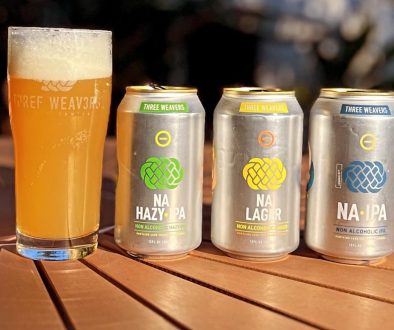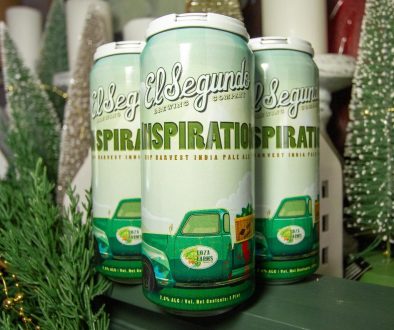The Van Behind The Cans
What’s the most significant change in craft beer over the last few years? It’s not a beer style, and it’s not a brewery buy-out. It’s canning. This format has given even the smallest breweries a better to way to get their beer in the hands of the people. Whether it’s direct to the consumer by way of a can release or through normal distribution, cans are everywhere. Limited runs, 16oz four packs and colorful graphics, are the new normal.
Canning lines, as well as can minimums, are pricey. If you are only going to can a few beers a month, training staff to operate and provide equipment up-keep can be daunting. Enter the mobile canner. Why not? Wineries have utilized mobile bottling trucks for years. The experienced staff running the bottling truck provides a valuable service and greater knowledge to get the job done right.
I reached out to one of the premier mobile canning operations, The Can Van to find out why mobile canning might be the best answer.
The Can Van was founded in 2011 and began operations in January of 2012. They operate seven vans all equipped with Wild Goose canning lines. Based in the Sacramento area, they cover about a 175-mile radius from their home base.
I meet up with the Can Van crew at the California Craft Beer Summit, and CEO Jenn Coyle provided me with some great insights into the canning process.
RF – How has the quality control in the canning equipment advanced since you’ve begun?
Jenn Coyle – There are a lot more companies trying to sell quality control equipment than when we began. Nothing compares to the experience of the operator. Knowing what to look for in a can-seam inspection, and how to achieve low oxygen pickup, in filling. These are all skills that develop over time. Running canning lines for so many years now, we pride ourselves on the quality of our finished product. When we first started, very few breweries were asking about DO (Dissolved Oxygen), but now its something we discuss with most of our customers. If breweries aren’t able to measure DO in their system, we can bring the tools to get them the data points on the starting DO in the tank, as well as what it is in the finished can.
RF – Has the style/methods of the canning machine changed?
Jenn Coyle – The canning lines we run have changed some in the past few years, but the basic technology is still the same. Like I said, quality is more about the operator, and none of the canning lines on the market will give you great quality if the operator doesn’t know what they are doing.
RF – Other than start-up costs, what other advantages does a mobile canner bring to the brewery?
Jenn Coyle – Since canning is all we do, we can be specialists in the process to ensure the best possible finished product. If a brewer is trying to run a brewery and package beer a few times a month on the side, they aren’t going to get as good at the process. Another big advantage is space. Many of our customers would never be able to fit a permanent line in their current breweries. It’s not unusual for us to set up in a taproom for a few hundred cases and then clear out before they open for business in the afternoon. Having a mobile solution enables so many of the smaller breweries to can the beer that otherwise would only make it out into the world in kegs, limiting their reach and potential market.
RF – Once a brewery is ready to make the jump into owning a canning line, have you been asked to provide training or consulting?
Jenn Coyle – I provide frequent consulting and training to former customers. I also do maintenance calls to fix canning lines, calibrate seamers, replace parts, etc. I even do training and maintenance for crowler machines that many breweries have at their bar. Those are sold as plug and play but can go out of spec. Most beer-tenders don’t have the knowledge to ensure they are selling their customers a good-to-go package. I’ve done that for breweries who aren’t even our customers because nobody likes to see leaking beer!
RF – Do you see the mobile canning operation as being as long lasting and stable as mobile bottlers have been for wine?
Jenn Coyle – While there is likely going to be a continued slowing in the growth of craft breweries, I think there will always be a market for mobile canning. Many of our customers either don’t have space or the desire for their own canning lines. Meanwhile, the market for mobile wine canning is just breaking open! We have been offering wine (and spirit) canning for a few years now, and there are more and more wineries looking at cans as a way to access outdoor enthusiasts, millennials, and to take back some of the share of the craft beverage market.

Why Can? As a consumer, beer lover and a sucker for catchy marketing, the can might be the reason I buy a beer. It’s also fairly obvious when you see so many breweries doing can releases on a regular basis. The lines to pick up the latest hazy 4 pack for $16, $20 or more, has become the norm. IPAs are best consumed fresh, so what better way to get your beer to the consumer as fast as possible than selling it to them, directly in a format they have come to love.



